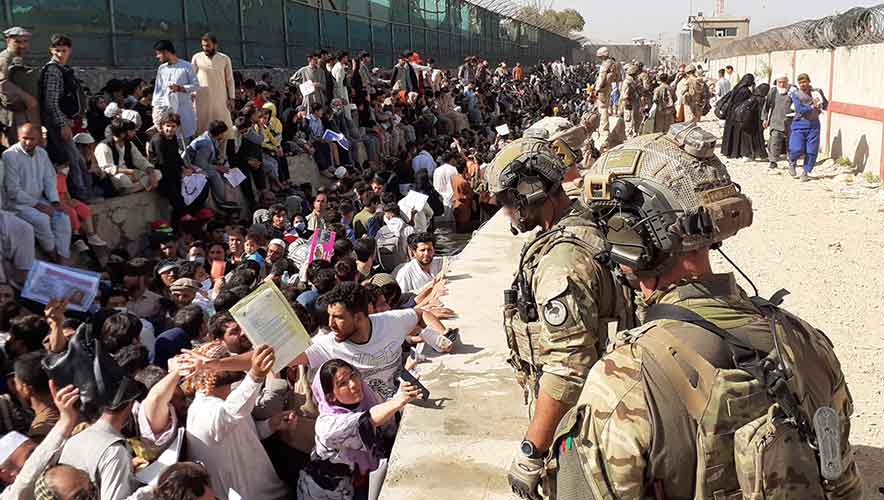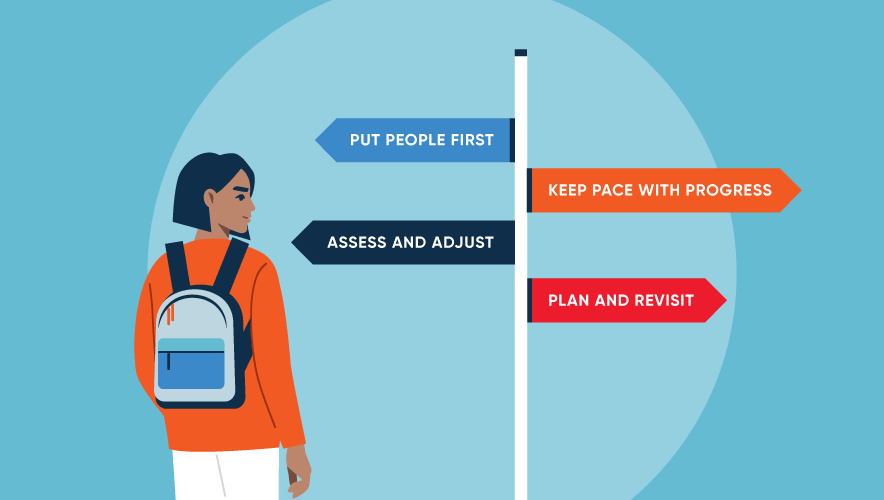U.S. Administration Admits Faults, Lessons Learned in 2021 Afghanistan Evacuation
The United States concluded its withdrawal from Afghanistan in August 2021—a messy end to America’s longest war. In the last few days of U.S. forces’ presence in the country, hundreds of people were killed in a bombing at the Kabul airport, more than 120,000 people were evacuated, and the Afghan government began to collapse. In a new report from the Biden administration, U.S. officials admitted they should have started the evacuation earlier.
The U.S. National Security Council released a 12-page summary of the government’s findings about the Afghanistan withdrawal, collecting results from two years of investigations and assessments.
The summary noted that the United States will now “prioritize earlier investigations when faced with a degrading security situation,” citing U.S. evacuation efforts from Ukraine and Ethiopia. The document also stated a commitment to building up internal capacity within the U.S. federal workforce, building internal processes, and forging partnerships—including with nonprofits, veterans service groups, companies, and other organizations—that can help manage unfolding crises.
In the run-up to the evacuation, the U.S. government extensively targeted its outreach to Americans and Afghan partners about the risk of national collapse, calling for U.S. citizens in particular to leave. However, the administration decided to avoid broadcasting potential worst-case scenarios too loudly, choosing to side-step signaling any lack of confidence in the Afghan government and defense forces. While the decision was based on military and intelligence input through the early weeks of August 2021 that Kabul would hold beyond U.S. forces’ withdrawal, that was clearly not the case.
“In a destabilizing security environment, we now err on the side of aggressive communication about risks,” the report said. “We did this in advance of Russia’s invasion of Ukraine. Months before the invasion, we proactively released intelligence with trusted partners. That engagement broadened—and grew louder and more public—in the weeks leading up to Russia’s invasion. This approach met strong objections from senior officials in the Ukrainian government who were concerned such warnings would spark panic and precipitate capital flight, damaging the Ukrainian economy. However, our clear and unvarnished warnings enabled the United States to take advantage of a critical window before the invasion to organize with our allies, plan the swift execution of our response, and enable Americans in Ukraine to depart safely.”
The U.S. government also prioritizes earlier evacuations, as well as earlier communication about risks. The document noted that as soon as the capitals of Ethiopia and Ukraine were threatened, Biden directed embassy posture adjustments—drawing down or evacuating personnel.
Mass evacuations require significant resources, planning, and most importantly, a dynamic culture that can respond rapidly to a crisis. https://t.co/A0edtbAHVK
— Security Management (@SecMgmtMag) March 26, 2023
The document largely lays blame for the difficult withdrawal from Afghanistan at the previous administration’s feet, repeatedly calling out former President Donald Trump’s administration’s decisions to hastily withdraw the majority of U.S. troops early, host talks with the Taliban (allegedly undermining confidence in the Afghan government), and enact restrictive and burdensome processes that slowed or halted the evacuation of many at-risk U.S. allies from the country. White House spokesperson John F. Kirby also said in a press conference after the document’s release that the Trump administration failed to share relevant transition materials with his successor’s team, leaving Biden with few good options, The New York Times reported.
In response, a spokesperson from Trump’s reelection campaign said the Biden administration was “trying to gaslight the American people for their disastrous withdrawal in Afghanistan that directly led to American deaths and emboldened the terrorists.”
The Afghanistan evacuation left many lessons for private organizations to learn as well, putting them into action in subsequent conflicts and challenges. Read more about those lessons learned and security considerations in Security Management’s March 2023 coverage on mass evacuations.












